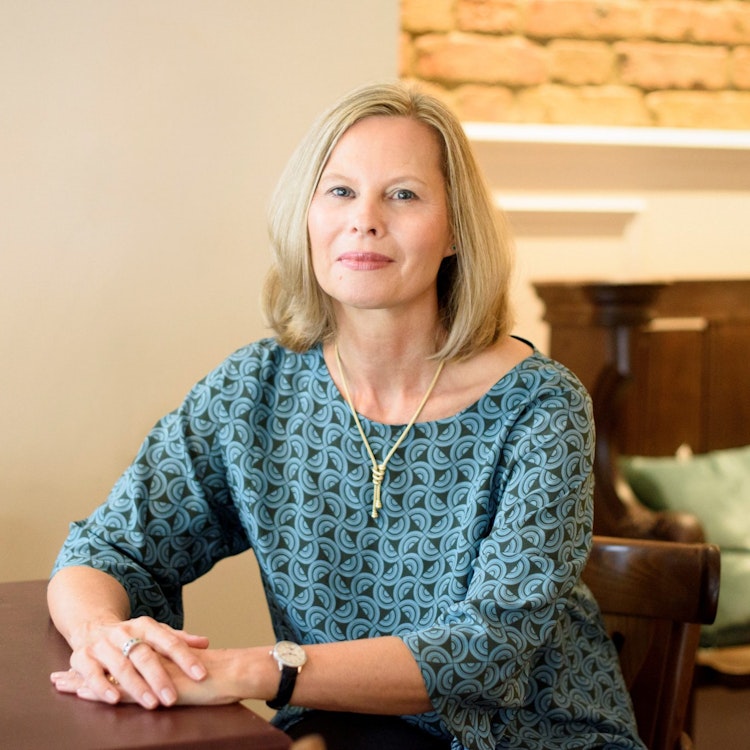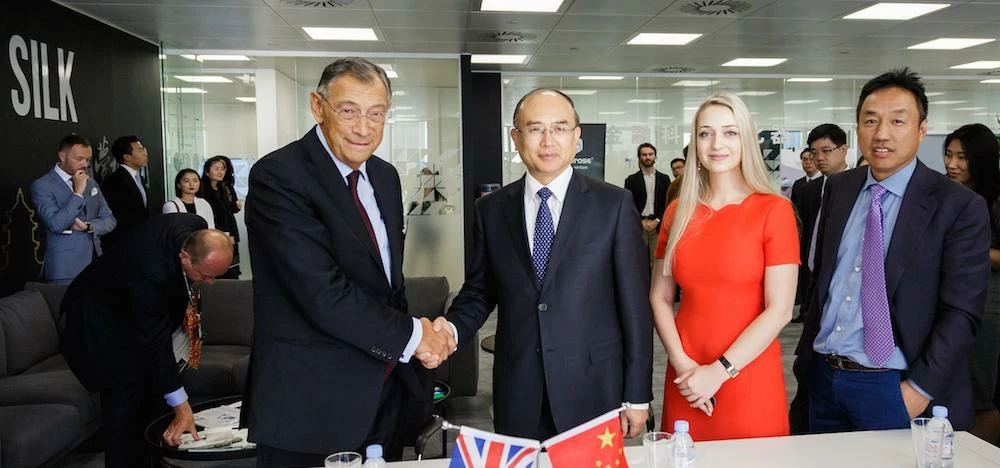British Patient Capital — the biggest investor in the UK’s startup ecosystem and a key investor in both VC funds and startups — is seeing more demand for investment from VCs than ever before, as funding from other sources dries up.
In the last 12 months, “knocks on the door” of BPC have increased, its CEO Catherine Lewis La Torre tells Sifted.
VCs have struggled to raise from LPs, with some managers spending over 18 months in the market to close their funds. A recent survey found that almost 30% of LPs in Europe expect to cut the number of funds they invest in over the next three years.
BPC, too, has had to slow down its investments into VC funds, La Torre says.
In the first half of 2023, VCs in Europe only managed to raise €7bn, according to Pitchbook data. That pales in comparison to 2021 and 2022, when they managed to bag close to €28bn each full year.
Industry slowdown
The British Business Bank, the UK's government-run investor, set up BPC in 2018 with the express mandate of “unlocking billions” for high-growth innovative companies.
It's now the most significant domestic player in the UK’s startup investment landscape with a budget of over £3bn and committed investments totalling £1.6bn. To date, BPC has backed 40 fund managers across 70 funds.
However, the number of funds you'll see its name on has fallen over the last 12 months because the managers that it's backed are taking longer to raise, La Torre says. "Although we can come in early and come in big as a cornerstone investor," she says, "we can't be 100% of a fund. So we're reliant on our fund managers being able to raise capital from private sector investors.”
BPC is still to publish details for its investments in the 2022-23 financial year, but La Torre says that on the funds side, BPC invests anywhere between £250m-350m annually. “But the demand for our capital is multiple times more than that,” she says.
According to its last annual report, BPC’s total investment activity was £341m for the year ending in March 2022. It also returned a sizeable profit of £339m before tax that year due to an increase in the value of investments — both its direct and fund investments — in the boom days of 2021 and early 2022.
Recent activity
BPC mainly invests in VC funds but has also made a few direct startup investments, most notably in the banking software company Thought Machine and big data startup Quantexa — both now unicorns.
Some of its recent VC investments include a $26m commitment to Kindred Capital’s third fund which closed at $130m in April. BPC also invested $30m in Northern Gritstone, an investment company focused on spinouts, and in UK-based deeptech VC firm IQ Capital, which recently raised its fourth and largest venture fund at $200m.
It's also been active in the direct investment side this year with a £10m investment in therapeutic startup OMass’s Series B. Quantexa’s recent £104m Series E raise — which saw it reach unicorn status — included a coinvestment by BPC alongside Dawn Capital.
It was also part of a £42m Series B raise for UK-based quantum computing startup Quantum Motion, which is led by academics from UCL and Oxford University. In all, BPC made 12 direct company investments in 2022-23, bringing its total to 21 as of the end of March 2023.
BPC typically invests in Series B-plus and is looking increasingly at VC funds focusing on growth and scaleup stages. “When companies are looking to break through and scale up, there sometimes isn’t enough breakthrough scaleup capital around to support those businesses,” La Torre says.
Focus on deeptech and hard science
The scaleup gap affects some sectors — like deeptech and hard science where venture capital money is “thin on the ground” — more than others, according to La Torre.
That's where BPC’s £375m Future Fund: Breakthrough comes in, to co-invest in sectors with high research and development costs. The OMass investment came out of this pot.
La Torre says the co-investment strategy is intended “to be catalytic in this market to try and crowd-in private sector capital alongside us into deeptech businesses with a strong UK foothold,” she says.
Within deeptech, La Torre points out, BPC isn't looking at artificial intelligence as a category of its own but is keen on certain use cases.
“We don't have an AI category, but we have a lot of AI companies in the underlying portfolio. And we certainly have companies using AI for different purposes — for instance, the crossover between AI and biotech and how those two industries are coming together,” she says.
Pension funds could do more
In recent months, the chorus has been growing for UK pension funds to invest more in VC. La Torre agrees that it would be “enormously helpful” if there was bigger participation from pension funds.
“I say that not just because it would be a nice thing to do. But if you look at the opportunity set and what is actually invested, there's a big gap,” she says.
And it's not impossible, La Torre says. “If you look to some other markets, the Nordics, Canada, Australia — there pension plans are playing more actively in this space. It's not impossible, you know, to be thinking about some allocation into this space.”
La Torre is set to step down as CEO in December this year after two stints in the top job — from 2018 to 2020 and the second starting October 2022. “This feels like the very best time to seek a new challenge. I will continue to follow developments at the Bank with great interest, in the knowledge that it is very well positioned to capitalise and build on its many achievements to date,” she said in April when the announcement was made.
The process to appoint her successor is ongoing.



